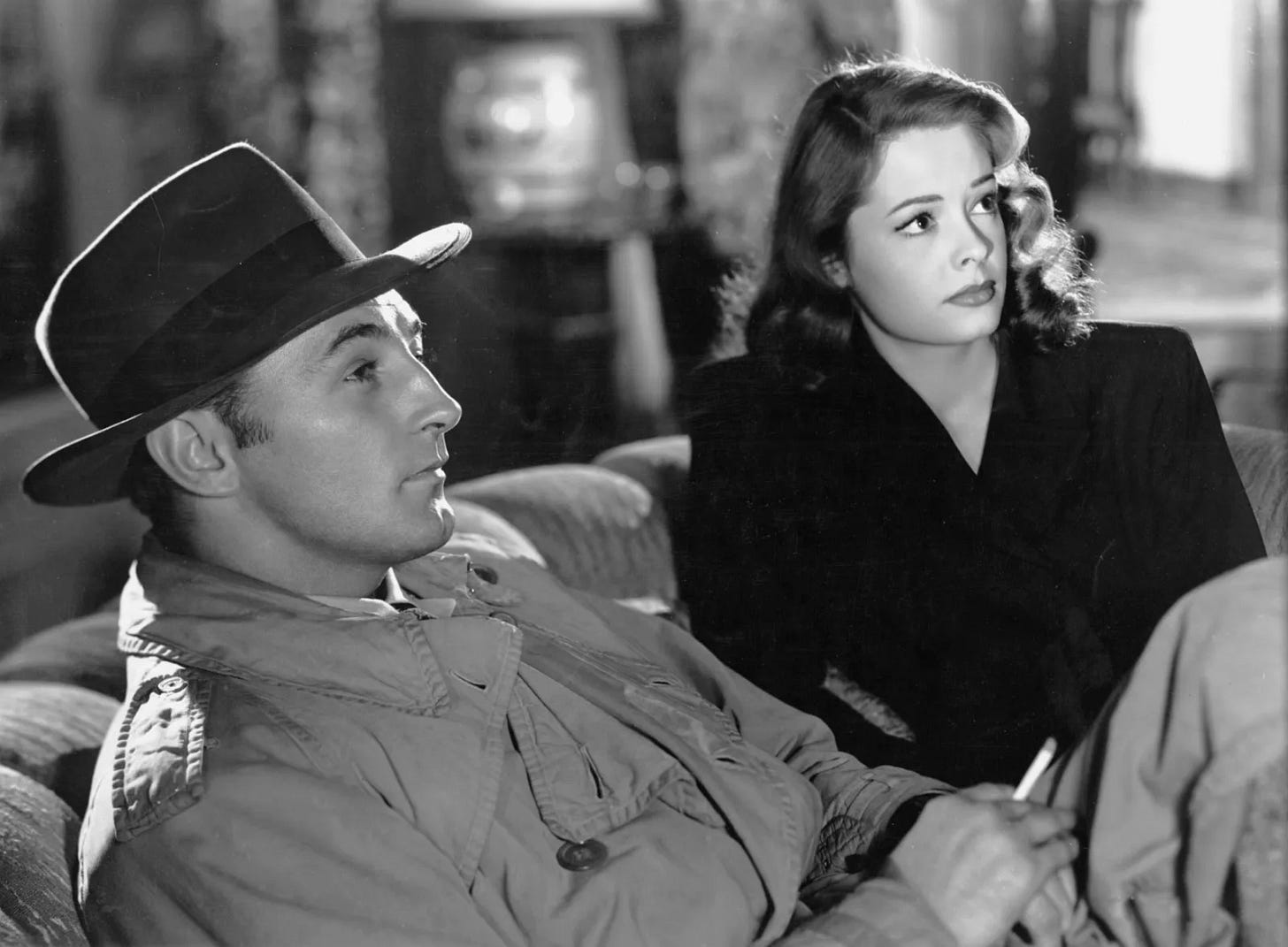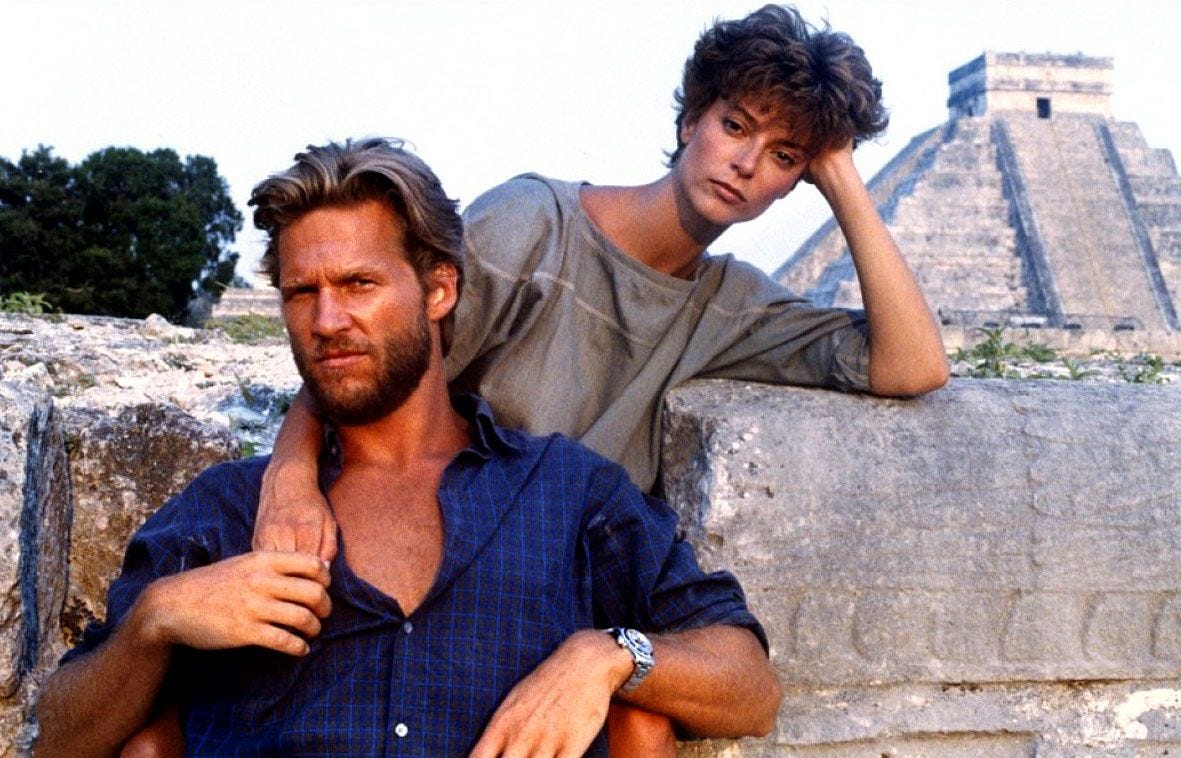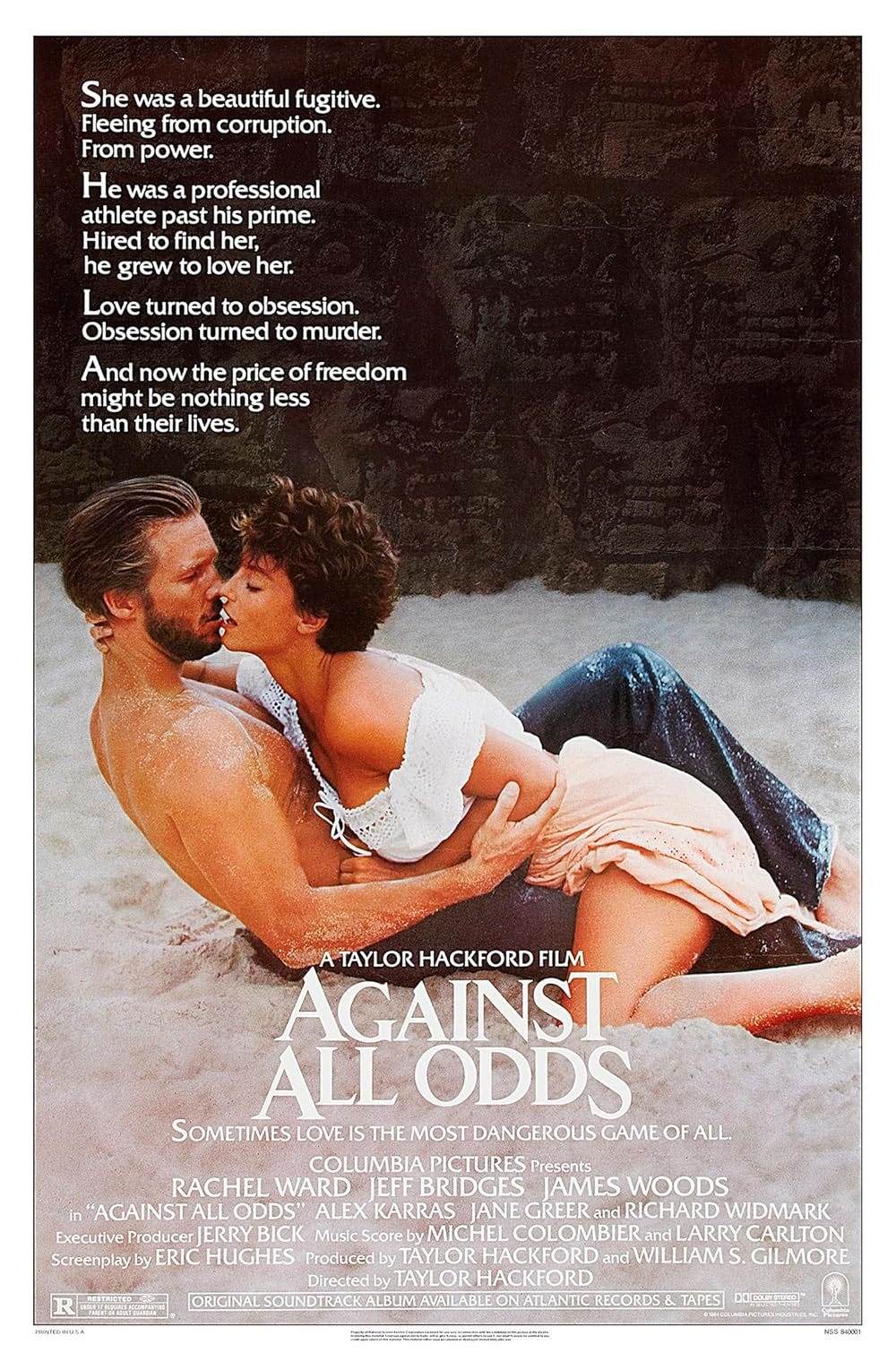“In the outstanding A Lonesome Place for Dying, Nolan Chase delivers a thoughtful, action-packed police procedural that tracks a new police chief learning to be a leader in a town succumbing to a growing drug trade.” Online Cogdill’s review at Shelf Awareness is very generous. Pick up a copy today!
A man is hired to look for another man’s runaway girlfriend. That’s the plot of Jacques Tourneur’s film noir classic Out of the Past, and its 1980s remake Against All Odds. (It’s also the plot of There’s Something About Mary, and probably a lot of other films, too).
Out of the Past stars Robert Mitchum as a PI, Kirk Douglas as the gangster shot and robbed by his former mistress, Jane Greer. It’s 97 minutes and every one of them matters.
Directed by Taylor Hackford (Proof of Life), Against All Odds has a similarly great cast, this time with Jeff Bridges as an ex-football player, James Woods as the gangster, and Rachel Ward as a rich girl who dated Woods to piss off her mother, who owns the football team. (The mother is played by Jane Greer) . Richard Widmark has a role too large to be called a cameo, and Dorian Harewood plays Woods’s lieutenant. The catchy Phil Collins ballad, written for the film, plays over the credits.
Despite all that, Against All Odds is neither a hidden gem nor a fun fiasco. It’s a 128-minute slog. Comparing the two films offers a valuable lesson in getting to the point.
In Out of the Past, Mitchum is a PI. One of the many charms of a PI story is how straightforward motivation is, at least at the beginning. No setup required: it’s a PI’s job to find the missing person. Simple. And another ever stays simple.
But in Against All Odds, Bridges is a football player at the end of his career, kind of like Nick Nolte in North Dallas Forty. Aging and beat up, Bridges thinks he still has a few good years left. Only he’s cut because his coach didn’t believe in him, and the team over needs money, and Richard Widmark sees no value in him, so Bridges goes to see James Woods, who offers him money to find his mistress, which Bridges accepts, because he has car and house payments, but then he thinks that if he finds Ward maybe he can talk her mother into getting him back on the team…
This is why screenwriters hate the note “I want to know more about this character.”
NONE of this adds anything to the story—it fact it bogs it down. Because ultimately we know the story is Bridges in Mexico looking for Rachel Ward, and what will he do when he finds her. All we need is a credible, logical reason to go looking.
One of the reasons why so many film noirs are great, or at least watchable nearly 100 years after their creation, is because they were made on the cheap—the filmmakers didn’t have time or money to piss away. Every foot of film had to serve the story, or it wouldn’t be worth shooting.
This isn’t to say characters shouldn’t have complex and at times conflicting motives. Out of the Past proves this—Mitchum goes from needing money to falling in love to wanting to save his life, all without trusting fulling Greer.
Against All Odds veers away from the violent love triangle into a plot about developers and blackmail. It’s a mistake, because Bridges and Ward have good chemistry and Woods is an A+ villain on his worst day.
Out of the Past focuses on less and means more.
But it doesn’t have that Phil Collins song.







With OUT OF THE PAST, I find the plot so complicated that I just relax and enjoy Mitchum and the lighting/cinematography, and all those scenes of men snarling and aggressively blowing backlit cigarette smoke at one another.
I like AGAINST ALL ODDS for reasons other than its overall quality, which is somewhere between mediocre and almost good (to me). Its plot does not hold up to serious scrutiny. But here’s what I do like:
—The music, particularly the opening theme
— Bridges as a comparative naïf who, because he isn’t really a criminal, behaves unpredictably in the eyes of other criminals and thus has the maddening habit of staying alive and semi-on top. He’s a great noir character because he seems to wish he was more soiled and corrupt than he is, and seems to regret his decency as a permanent liability
— Bridges’ hair
— Bridges’ clothes
— The expressions on Bridges’ face when he doesn’t have a response to a provocation
— The cinematography and color schemes, so perfectly of its time
— Woods, of course
— Swoosie Kurtz
— Saul Rubinek
— Alex Karras
— Widnark
— Jane Greer (the supporting cast is so well-chosen and well-acted)
— The way Bridges says “Jaaaake” with pained wisdom when Jake talks about Jessie for the first time
— The tortured way Jake says, “It’s just not OK to be alone anymore” and “I just tried to love you. Why did that have to be a bad thing?”
To me, AGAINST ALL ODDS is the pleasing accumulation of professionally arranged assets in a movie without a coherent center. I’ve seen it so many times since 1984 that I don’t really even see hear what doesn’t work anymore.